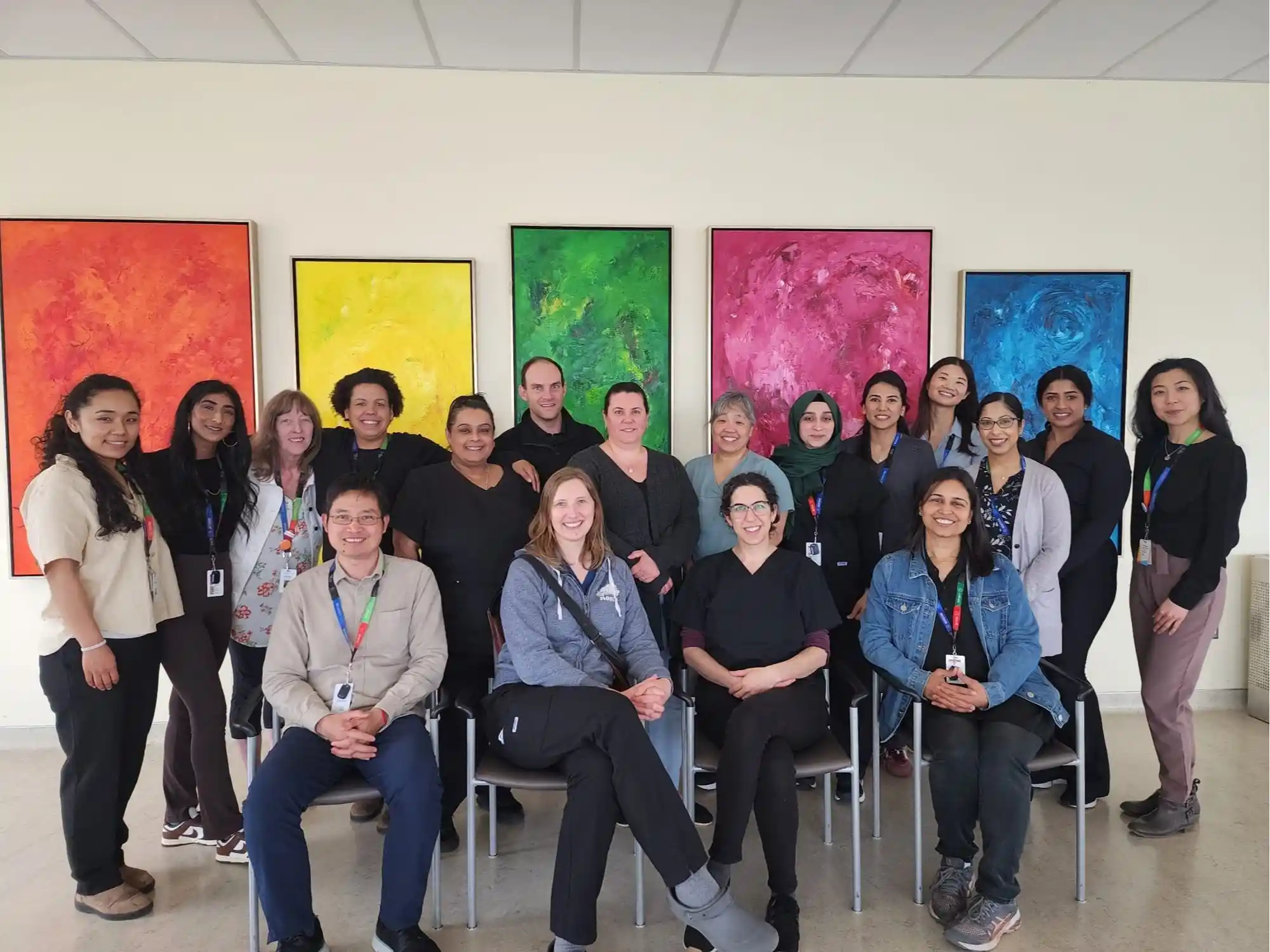Introduction
The Certificate of Global Mental Health Orvieto 2012 program stands as one of the most significant initiatives in the global mental health field, aimed at addressing the challenges mental health professionals face worldwide. Mental health disorders affect millions of people globally, with varying access to treatment, care, and support depending on one’s location, resources, and socio-political context. The 2012 program, held in Orvieto, Italy, became a critical platform for shaping the future of mental health care in diverse settings.
In this extended guide, we will provide an in-depth understanding of the Orvieto 2012 Certificate Program, its origins, its impact on global mental health, its interdisciplinary approach, and the important lessons learned from it. This article will also explore how the program fits into the broader context of global mental health, its legacy, and its relevance today for mental health professionals, policymakers, and advocates.
What is the Certificate of Global Mental Health Orvieto 2012?
The Certificate of Global Mental Health Orvieto 2012 was a one-of-a-kind educational program designed to bring together mental health professionals, researchers, policymakers, and advocates to address the pressing mental health challenges faced around the globe. The program was founded by a consortium of leading global health organizations, including the World Health Organization (WHO) and the World Psychiatric Association (WPA), and it aimed to provide participants with the knowledge and tools needed to address mental health needs in low-resource settings.
The program took place in Orvieto, Italy, a city that serves as a hub for international cooperation and learning. The focus of the program was to create a platform for cross-cultural dialogue, promote mental health awareness, and enhance the capacity of professionals to provide effective care in diverse, often underserved regions.
Why Was It Crucial?
Mental health is universally recognized as a fundamental part of human well-being, yet it remains underfunded and stigmatized in many parts of the world. While medical advancements have made it possible to diagnose and treat many mental health conditions, these innovations have not reached the majority of the world’s population, particularly in low- and middle-income countries (LMICs). The Orvieto 2012 Certificate Program was established to address this gap, advocating for global mental health reform and providing a learning experience that would empower professionals to make an impact in under-resourced regions.
Key Objectives of the Program
The core goals of the program were:
- Promote Global Mental Health Awareness: Raise awareness of mental health issues as a critical component of overall health, especially in LMICs.
- Equip Professionals with Tools for Effective Action: Provide mental health professionals with the training, resources, and knowledge to effectively address mental health needs in low-resource settings.
- Facilitate Cross-Cultural Collaboration: Bring together diverse experts and practitioners from various cultural backgrounds to share best practices, research, and innovative solutions for mental health care.
- Encourage Policy Advocacy: Advocate for mental health policy changes in national and international health agendas.
The program combined lectures, case studies, interactive discussions, and collaborative learning to help participants gain a broader and deeper understanding of how to approach mental health issues on a global scale.
The Legacy of the Orvieto 2012 Program
1. Building Global Mental Health Capacity
Since its inception, the Orvieto 2012 Certificate Program has been instrumental in building capacity among health professionals. One of the critical outcomes of the program was the development of a global network of mental health advocates and experts. This network continues to contribute to local and international efforts aimed at improving mental health care.
2. Global Mental Health Policy Influence
The program’s influence extended beyond individual training—it also had an impact on global mental health policy. The lessons learned in Orvieto, especially regarding the integration of mental health services into primary health care, have been incorporated into global frameworks and initiatives by organizations such as the WHO and the World Bank.
3. Focus on Mental Health as a Human Right
A key theme of the Orvieto 2012 Certificate Program was that mental health is a human right, a concept that has gradually gained international recognition. The program emphasized the importance of providing equitable access to mental health care regardless of socioeconomic status, geographical location, or cultural background. This advocacy has helped to shift international health policy toward prioritizing mental health services.
Key Focus Areas of the Orvieto 2012 Certificate Program
The curriculum of the Certificate of Global Mental Health Orvieto 2012 covered several crucial areas that continue to shape how mental health professionals approach their work. Let’s explore these focus areas in greater depth:
1. Mental Health and Human Rights
The concept of mental health as a human right was one of the most significant outcomes of the Orvieto program. Mental health care in many countries is often neglected, and people with mental health disorders may face violations of their rights, such as lack of access to care, forced confinement, or discrimination. The program highlighted the importance of ensuring that mental health services are accessible, available, and provided in a manner that respects the dignity of individuals.
Human Rights in Practice
The program also explored practical ways of integrating human rights principles into mental health services. For example, it discussed the need for community-based care models, where individuals with mental health conditions are not isolated from society but supported in their own communities. This model is particularly important in low-resource settings, where mental health institutions may be scarce.
2. Cultural Sensitivity in Mental Health Care
Mental health conditions manifest differently in different cultural contexts. The Orvieto 2012 Certificate Program taught participants to be sensitive to cultural norms, beliefs, and practices that affect how mental illness is perceived, diagnosed, and treated. Understanding cultural differences is critical for effective mental health interventions.
Case Studies: Cultural Approaches to Mental Health
The program presented several case studies from diverse global regions, illustrating how cultural factors influence the experience of mental illness. For instance, in some African cultures, mental illness might be perceived as a spiritual issue, requiring traditional healing methods rather than psychiatric treatment. On the other hand, in Western contexts, the biomedical model of mental health care predominates.
Culturally Adapted Interventions
The Orvieto program encouraged the development of culturally adapted interventions, where mental health care providers tailor treatments based on the cultural backgrounds of their patients. This approach helps overcome barriers to treatment adherence and improves outcomes for patients.
3. The Global Burden of Mental Health Disorders
Mental health disorders are a leading cause of disability worldwide, yet they are often under-recognized and underfunded. The program took a close look at the global burden of mental health disorders, providing statistical data and research on the prevalence and impact of these conditions across different regions.
Prevalence and Impact
According to the WHO, depression and anxiety disorders are among the most common mental health conditions, affecting millions of people globally. However, other conditions like schizophrenia, bipolar disorder, and post-traumatic stress disorder (PTSD) are also prevalent and often go untreated.
Economic Costs of Mental Disorders
The program also highlighted the economic costs of untreated mental health disorders, including lost productivity, increased healthcare spending, and the broader social costs of individuals and families affected by mental health conditions. Addressing mental health issues not only improves individual well-being but also has long-term economic benefits for communities and nations.
4. Global Mental Health Policy and Advocacy
The program emphasized the importance of mental health policy in shaping national and international responses to mental health challenges. It encouraged participants to advocate for policies that prioritize mental health within public health frameworks.
Integrating Mental Health into National Health Systems
One of the key recommendations from the program was the integration of mental health services into primary care settings. This approach helps to ensure that people with mental health issues receive care early, reducing the need for more intensive and costly treatments later.
Building Political Will
The program also taught participants strategies for building political will to improve mental health services. This included engaging with governments, civil society organizations, and international bodies to advocate for better mental health policies and increased funding for mental health programs.
5. Innovative Treatment Models and Interventions
The Orvieto 2012 Certificate Program showcased innovative treatment models and interventions, particularly those that could be implemented in resource-constrained settings. One such model is task-shifting, where non-specialist healthcare workers are trained to provide mental health care.
Task-Shifting in Practice
In many parts of the world, there is a shortage of trained mental health professionals. The task-shifting model helps to address this gap by training community health workers, nurses, and even teachers to deliver basic mental health services. For example, mental health workers might use cognitive behavioral therapy (CBT) techniques in group settings to address common mental health issues like depression and anxiety.
6. Mental Health in Emergencies and Conflict Zones
Another focus area of the Orvieto program was the provision of mental health care in emergency situations. The psychological impact of natural disasters, conflict, and displacement can be profound, and the program provided guidance on how to address these needs.
Addressing PTSD in Refugee Populations
One of the case studies presented in the program involved refugees who had fled conflict zones and were experiencing post-traumatic stress disorder (PTSD). The program explored how trauma-informed care could help these populations rebuild their lives.
7. Developing Mental Health Leaders
A key aspect of the program was to train the next generation of global mental health leaders who would take on roles in policy-making, research, and healthcare provision. The program encouraged leadership development by offering participants opportunities to engage in real-world projects, collaborate with international peers, and gain experience in global mental health advocacy.
Conclusion: The Ongoing Importance of Global Mental Health
The Certificate of Global Mental Health Orvieto 2012 program was an essential step in advancing the global mental health agenda. Its legacy is reflected in the improved global understanding of mental health, the growth of an international network of mental health professionals, and the increased emphasis on mental health in global health policy.
As we move forward, the work started in Orvieto in 2012 continues to influence mental health care globally. The ongoing challenges of mental health disparities, stigma, and underfunding demand continued efforts to promote mental health as a universal right.
For professionals interested in furthering their knowledge in global mental health, exploring resources like the World Health Organization (WHO) and the World Psychiatric Association (WPA) provides access to a wealth of information and continuing education opportunities.
By continuing to invest in education, policy, and mental health services, we can help ensure that mental health care becomes more accessible, equitable, and effective for everyone, regardless of where they live.for more posts also read this networksights.com















Leave a Reply